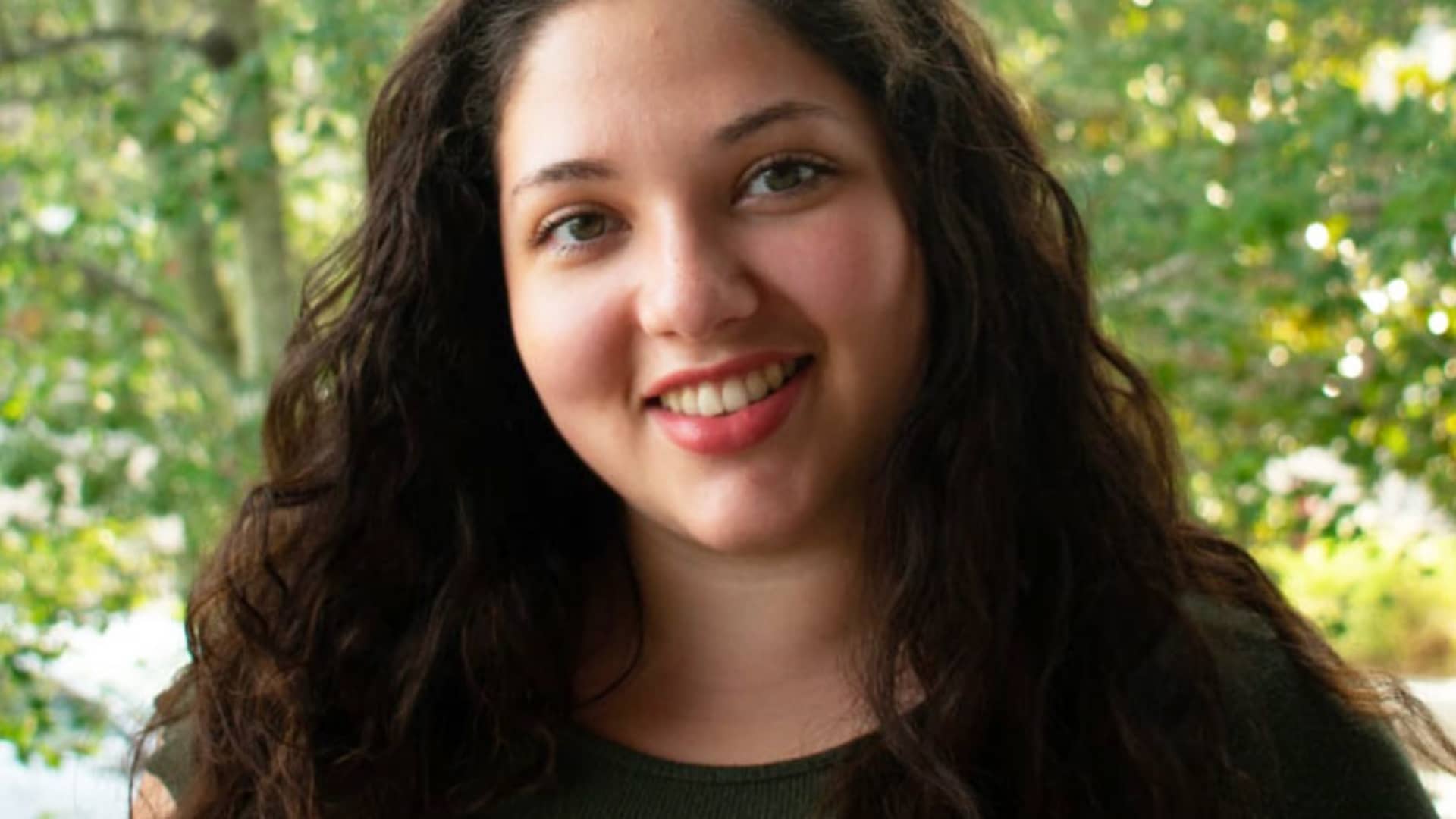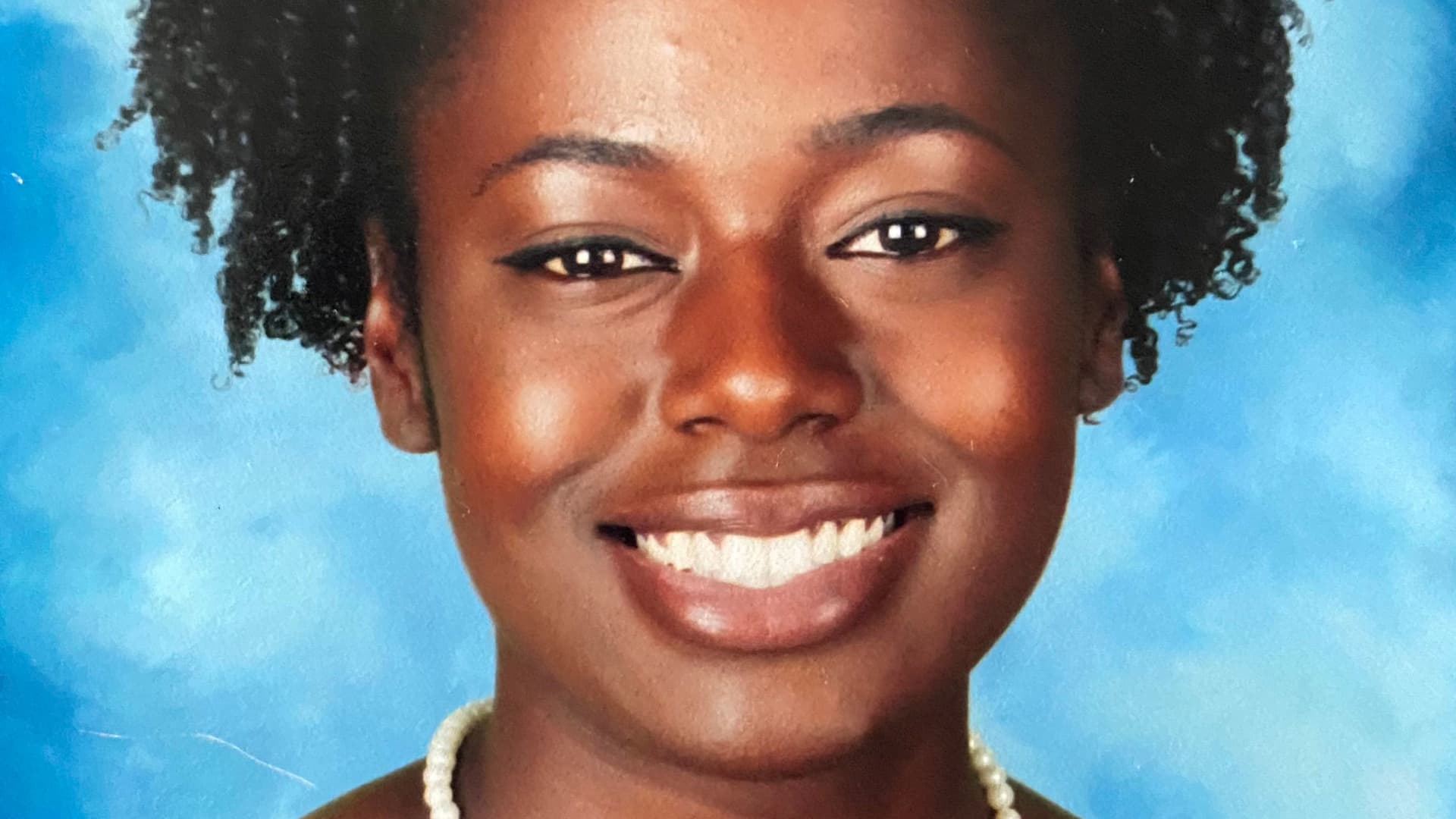The coronavirus pandemic has been challenging for Latinx students in the past year but it has also shaped their future plans. Many chose to go to graduate school to add another degree to their resume before they hit the job market.
Graduate enrollment is up 4.4% overall this spring, compared to an increase of 1% in spring 2020, according to the National Student Clearinghouse Research Center. Latinx students continued to see the biggest jump – up 14% this spring compared to an 8% gain a year ago.
Chelsea Hylton, a graduate student at the University of Southern California studying digital journalism, said the uncertainty of the job market was what made her apply to grad school, with the intention of expanding her portfolio.
"Without the pandemic, I don't think that I would've applied to grad school or would've even considered it a viable option," Hylton said.
During this time, however, Hylton contracted Covid-19. Away from her home in Los Angeles, she says the time she spent cooped up in her Wisconsin-based apartment was hard, but it made her re-evaluate her priorities: family and friends.
"The pandemic reminded me that every day is not guaranteed," she said. "If I have the opportunity to check up on people, then I need to take advantage of that."
Hylton, who is now back home in Los Angeles, says she looks forward to the different opportunities her graduate school program will bring. But for the remaining two semesters of her three-semester program, Hylton plans to work on personal growth with an open mindset.
"I know everything isn't always going to be positive," she said. "But I think having a positive mentality can help just a bit more."
In the meantime, Hylton is planning to roll with the punches that life brings, with the goal to one day write for the Los Angeles Times or the New York Times and eventually, earn a Pulitzer.
More from College Voices:
College graduates are struggling to make up for the 'lost year' created by the coronavirus pandemic
Latinx college enrollment was rising before Covid but the pandemic has taken a toll
Why Black and Latinx women are more likely to struggle with impostor syndrome—and how to overcome it
Some students chose to go to law school amid the pandemic. The number of students applying to law school rose more than 13% from last year to nearly 80,000, according to the Law School Admission Council. More than 10,000 of those were Hispanic/Latinx students, up nearly 13% from a year ago.
Gabriela Rivero, a graduate of Harvard University's sociology department, completed her LSAT-Flex, a remote at-home version of the Law School Admission Test, last June. The application cycle has been very competitive, Rivero said. Additional factors like living back home, maintaining a long-distance relationship with her partner in Cuba and gearing up to move have exacerbated an already difficult process.
"The pandemic heightened my anxiety," Rivero said. "But I also think it's given me a little more confidence just because I know that we're all going through things and life is short, so why not take a chance."

As graduation neared, Rivero spent a majority of her time volunteering at the school's immigration and refugee clinic and completing her thesis. Rivero aimed to gauge how students on campus felt about their Latinx identity, including how connected they felt to their culture and the discussion surrounding language and terminology.
Rivero found a similar perspective among students. "Everybody identified as Latinx but they had a very different conception of what it was," she said. "They felt like a part of this group, but still out of place."
Rivero's macro goals, however, include working in areas of social justice and policy.
"Eventually, I want to be an immigration attorney," Rivero said. "I want to help people who are often in a situation where they don't have access to what they need."
Rivero is attending the University of Miami School of Law on a full tuition scholarship awarded to her by the Miami Scholars Public Interest Program. Rivero said that her plan for the future is to move into public policy, with the hope of one day becoming a senator and, eventually, president.
Francesca Little is among those who enrolled in a law school program in 2020. At the time, Little said she felt like she had nothing to lose and, in spite of the pandemic, she's glad she made the decision to go to the Stetson University College of Law. However, her experience thus far has been challenging.
"Because of the pandemic, you lose a lot of the normal interactions and social events and activities that allow you to meet and better understand your peers," Little said. "Things as small as meeting other students can help keep you sane."

Little is interested in becoming an attorney who focuses on areas of immigration, social justice and international law. And as she moves into her second year of law school, Little is most excited about creating a Spanish guide of legal terms and common concepts during her time in the social justice advocacy concentration.
"I want to work on this guide as something that I can leave behind," she said. "I think it's about access and this way, if a student or someone from the community needs it, they can use it as a resource."
Attending law school, however, can vary for each person. And a part of that may be influenced by a number of financial and academic factors that a person must face early on. Sydney Montgomery, CEO of S. Montgomery Admissions Consulting, specializes in helping first-generation and minority college and law school applicants.
A graduate of Princeton University and Harvard Law School, Montgomery's work focuses on dismantling systemic racism in education. A student's academic journey is drastically influenced by the resources they can access, Montgomery said.
Her passion to help students began before going to college, which she attributes to her involvement in her church and her upbringing in Montgomery County, back in Maryland.
"It made me realize that even though we talk a lot about the education gap in this country, we don't spend a lot of time talking about who's at home and the resources, information and support that person is getting," Montgomery said.
It's not that people aren't smart enough, it's that they just don't know the rules of the game ̶ or maybe that there's a game at all, Montgomery said. "I think the process has gotten way more stressful than it needs to be," she said.
For some students, the pandemic provided a much-needed break.
Aisha Street just got her bachelor's degree in media entrepreneurship from Georgia State University this spring. It took six years as she struggled with mental health issues. She was planning to go to law school in Louisiana but instead, she said she's going to take things slow for the near future.
"The pandemic gave me the opportunity to think and re-evaluate what my wants and needs are," Street said. "Right now, I'm holding off on law school in order to save up and pay down some of my debt."
Street is aiming to work in entertainment law after gaining experience at an Atlanta-based music label company. But in the meantime, she is aiming to land a job in entertainment, with plans to pay off her student loans, until she is more financially stable.

Whatever students are going through, Montgomery said it's important for them to realize that there are people and resources available to help them.
"If you feel like you're struggling or you're not really sure if your school has good resources, get in touch with a community or group of people that you think can support you," Montgomery said.
CNBC's "College Voices″ is a series written by CNBC interns from universities across the country about getting their college education, managing their own money and launching their careers during these extraordinary times. Francisco Velasquez is a multimedia journalist and a business and economics student at the Craig Newmark Graduate School of Journalism at CUNY. He is a former money and work reporting intern for CNBC Make It and a former NBC News fellow. His mentor is A.J. Vielma. The series is edited by Cindy Perman.

